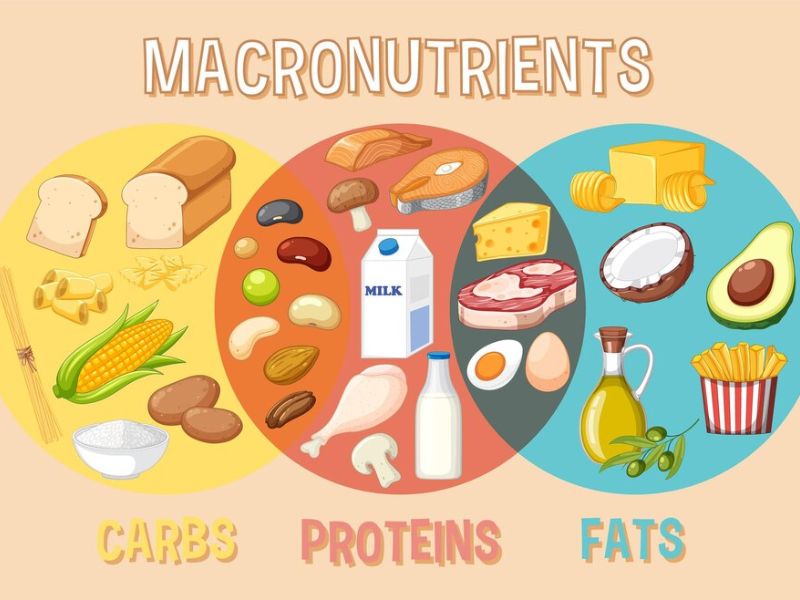So you’ve hit the gym, ready to sculpt your dream physique. Awesome! But hold on, are you confused by all the crazy diet advice floating around, especially regarding strength training meal plans for beginners and pre and post workout nutrition?
Forget starving yourself! New research shows you actually need to eat enough to build muscle. Think of your body like a car: working out (exercise) burns fuel, but without enough fuel (food), your progress sputters out.
This guide tackles 9 common diet myths that can trip up beginners. We’ll bust the confusion and get you on the right track to fueling your fitness journey the smart way.
Strength Training Diet Myths Debunked
Myth #1: Starving Yourself is the Shortcut to Muscle Building

Forget crash diets and calorie restriction. Studies published in the National Institutes of Health (NIH) showcase the importance of sufficient protein intake (around 0.8-1 gram per kilogram of body weight) to support muscle growth and repair [*].
Building Muscle While Eating Enough? Sounds counterintuitive, right? Here’s the truth: your body needs energy to build muscle. Severe calorie restriction creates an environment where your body breaks down muscle tissue for fuel, hindering your progress.
Myth #2: Carbs Are the Enemy

Not all carbs are created equal. Simple carbs like sugary treats can spike blood sugar and lead to crashes, leaving you feeling sluggish. But complex carbs found in whole grains, fruits, and vegetables provide sustained energy to fuel your demanding workouts.
Think: brown rice, sweet potatoes, and whole-wheat bread instead of white bread, pastries, and sugary drinks. These complex carbohydrates provide a slow and steady release of glucose, keeping your energy levels consistent throughout the day.
Myth #3: Late-Night Snacking Equals Fat Gain

Science tells a different story. A 2017 study in the International Journal of Obesity concluded that total daily calorie intake for muscle gain is a more significant factor in weight gain than meal timing [*].
Focus on healthy eating throughout the day. Prioritize whole foods and avoid overindulging before bed. Sure, that late-night pizza might be tempting, but sticking to a balanced muscle building meal plan and healthy snacks will keep you on track.
Myth #4: “Clean Eating” is the Only Way

Clean eating has its merits, promoting a focus on whole, unprocessed foods. However, it shouldn’t be about complete deprivation. Registered dietitian Natalie Jill emphasizes a balanced and sustainable approach.
Think 80/20 rule: Aim for 80% of your diet to consist of whole, unprocessed foods like lean protein sources, fruits, vegetables, and whole grains. Leave room for the occasional indulgence in moderation. A slice of pizza with friends won’t derail your progress, but remember, mindful portion control is key.
Myth #5: Fun Foods are Off-Limits

Life’s meant to be enjoyed! Depriving yourself completely of your favorite treats can lead to cravings and hinder your long-term progress.
Practice portion control and make smart choices. Enjoy a burger occasionally, but pair it with a side salad and unsweetened iced tea for a more balanced muscle building meal plan.
Myth #6: Protein Shakes Right After Every Workout Are Essential

While protein is crucial for muscle repair and growth, research by the American College of Sports Medicine (ACSM) suggests that total daily protein intake is more important than immediate post-workout consumption [*].
Don’t get caught up in the post-workout protein shake craze. Spread your protein intake throughout the day and focus on consuming enough during mealtimes. Aim for protein sources like chicken, fish, beans, legumes, nuts, and dairy products.
Myth #7: Supplements are a Magic Muscle-Building Bullet

Supplements can be beneficial in certain situations, but they shouldn’t replace a well-rounded diet.
Imagine this: you wouldn’t build a house solely with nails, would you? You’d need a foundation, bricks, and other materials. Just like building a house, building muscle requires a strong foundation – a balanced diet rich in protein, complex carbohydrates, and healthy fats.
Consult a healthcare professional for guidance on supplements if needed, but prioritize a diet rich in whole foods to obtain the essential nutrients your body craves.
Myth #8: All You Need is Protein

Muscle isn’t built solely on protein. Healthy fats are essential for hormone regulation and nutrient absorption, while complex carbohydrates provide the energy to power your workouts.
Think beyond just protein shakes. Lean protein sources like chicken, fish, beans, legumes, nuts, and healthy fats like avocados, olive oil, and fatty fish are all crucial for muscle building and overall health [*].
Myth #9: Working Out Means No Need to Adjust Your Diet

Strength training is fantastic! It burns calories and helps build muscle, but ignoring your diet won’t maximize results.
Think of it like this: your body is a car. Working out (exercise) is like stepping on the gas pedal, but if you don’t put in enough fuel (food), your car won’t go far.
Strength training increases your body’s calorie expenditure. To support muscle growth and recovery, you might need to slightly adjust your calorie intake upwards. This doesn’t mean overeating; a registered dietitian or healthcare professional can help you determine the right amount of calories based on your individual goals and activity level.
Conclusion
So, you’ve embarked on your strength training journey, excited to sculpt your dream physique. But bombarded by conflicting nutritional advice, you might be wondering: what should I actually eat?
Forget about crash diets! New research emphasizes the importance of healthy eating enough to fuel muscle growth. Think of your body as a car; working out burns calories (fuel!), and without sufficient intake, your progress stalls.
This guide has tackled 9 common diet myths that can trip up beginners. We’ve busted the confusion and set you on the right track to fueling your fitness journey effectively.


1 thought on “What Diet Myths Strength Training Newbies Should Avoid? ”